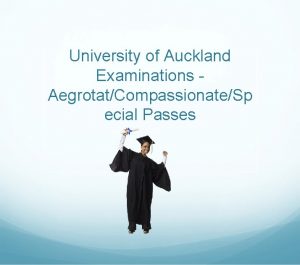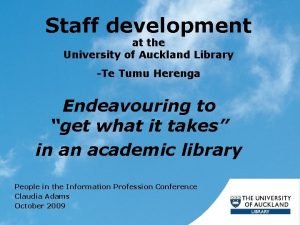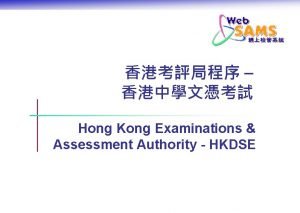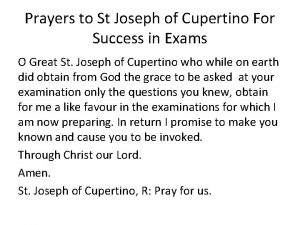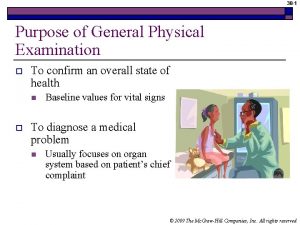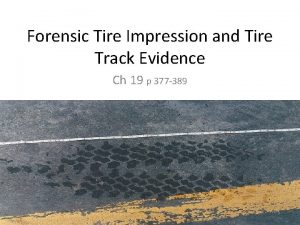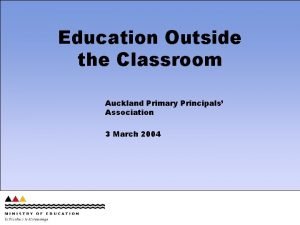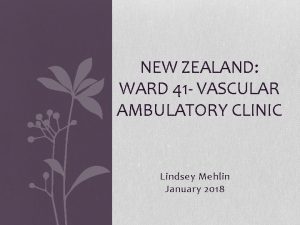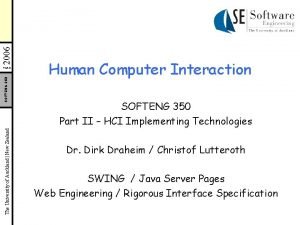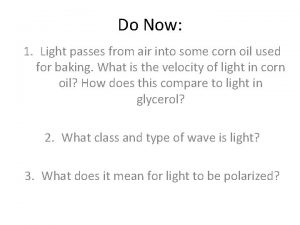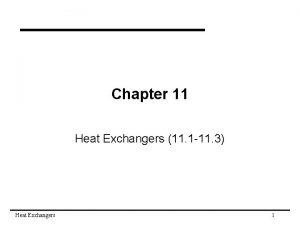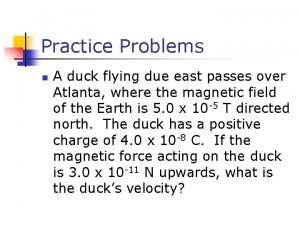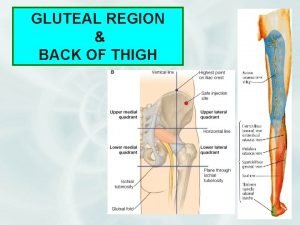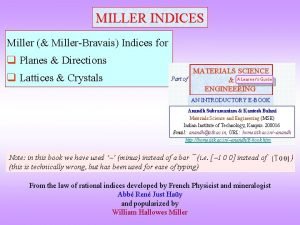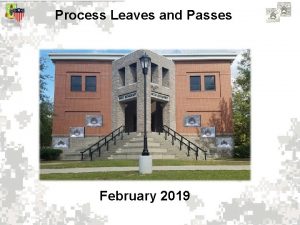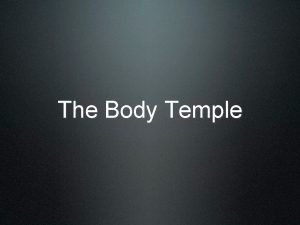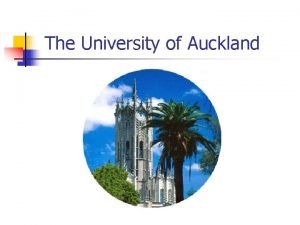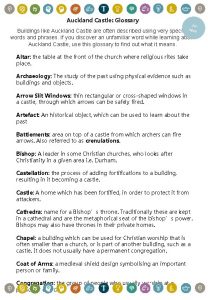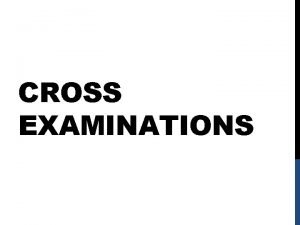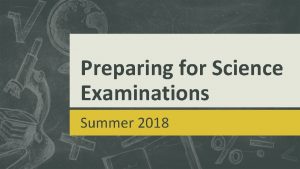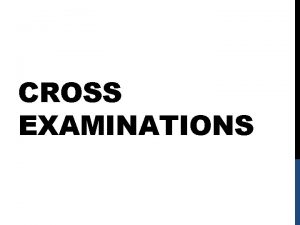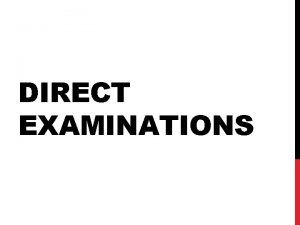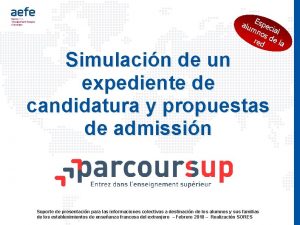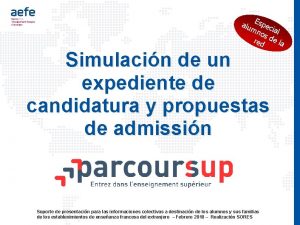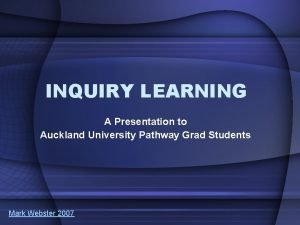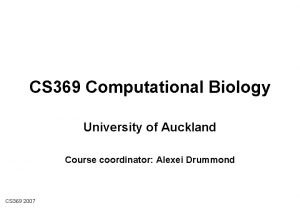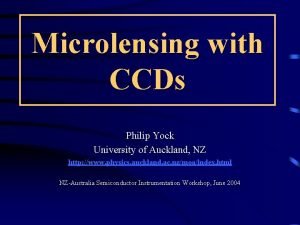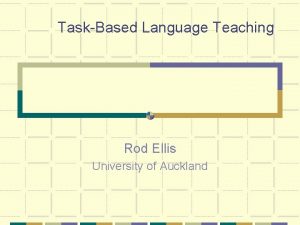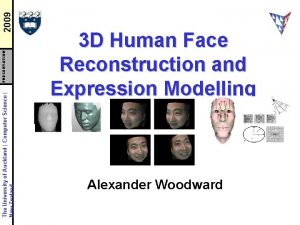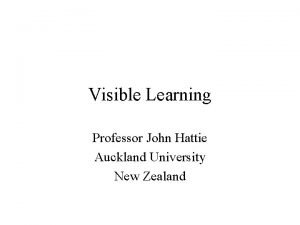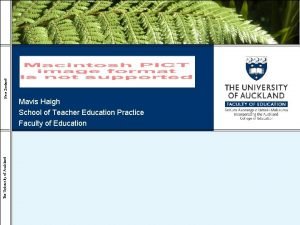University of Auckland Examinations AegrotatCompassionateSp ecial Passes AegrotatCompassionateSpecial






































- Slides: 38

University of Auckland Examinations Aegrotat/Compassionate/Sp ecial Passes

Aegrotat/Compassionate/Special Passes The University wants to recognize and minimize the effects on examination results of the fact that students suffer unexpected illness, injury and personal or family disasters beyond their control While Maintaining academic standards and fairness to all students. Note The university does not want to run a system of supplementary examinations

Those involved in the process Examinations Office – through which the forms pass and with whom the students may make contact. Student Health and Counselling The Department Senate Representative.

Examination Regulations pp 50 – 54 of the 2015 Calendar 11 Missed Examinations 12 Aegrotat and Compassionate Consideration 13 Reconsideration 14 Written Tests

11 Missed Examination Student comes at the wrong time. Send student to examinations office Regs do NOT allow the student to sit the exam at another time (except for Masters, Bachelors Hons & PG Dip students for whom special arrangements MAY be made within 24 hours of the missed exam). All other students can apply for Special Pass, (in practice the student needs at least B+ results in course-work or other courses in subject, or ‘special element of hardship’). The appropriate form must be completed and submitted within one week after the missed examination In some circumstances an aegrotat or compassionate application MAY be appropriate.

Special Pass Decision to award a special pass is responsibility of Senate, exercised by Senate’s Representative, after obtaining recommendation (with coursework information - detail is crucial) from relevant Department. In making the decision the Senate Representative can take into account the coursework in the course, or in that subject, or a particular of element of hardship.


How is the final grade determined? There are two separate processes involved in the application. Does this student meet the criteria for Aegrotat/Compassionate consideration? A decision of Student Health and Counselling. Is the student’s course work up to a standard that indicates she/he would have passed had this event not occurred? Academic decision The final grade is based on course work throughout the semester, preferably secure coursework.

12 Aegrotat & Compassionate consideration. Covers failing to sit exam (DNS) impaired performance and/or impaired preparation because of (temporary) illness or injury – aegrotat or other exceptional circumstances outside student’s control – compassionate

The process - centrally administered through examinations office - concerns examinations, or written tests, NOT essays/assignment/lab work (such coursework is the Department’s (HOD) responsibility & decision). Written tests – green forms Examinations either blue forms (medical) or purple (counseling). The forms are available online.

Regulation 11 a An application for Aegrotat or Compassionate Consideration may be made by candidates who have been prevented from being present at an examination or who consider that their preparation for, or performance in, an examination has been seriously impaired by temporary illness or injury or exceptional circumstances beyond their control, provided that the time constraints are met. Application must be lodged within one week of the date of the examination or, if there is more than one, within one week of the last examination.

Process Student consults University Health & Counselling or their registered medical practitioner or dentist. Student must have the relevant form filled out by the health professional. The doctor must state when they saw the student, give sufficient detail of the illness/injury to show that the student was not responsible for it and state whether in their opinion the illness/injury prevented the student from sitting the exam or impaired preparation/performance. Form lodged with University Health Services and application fee paid ($30 per course to max of $110).

For DNS or impaired performance – Student must be seen on the day of the exam (if not possible then the day before or after. ) Candidate must not have been responsible for the illness or injury NOTE A DNS condition must make it impossible to sit the exam (not just likely to do badly. ) That is, students are advised to sit the examination if at all possible.

For Impaired preparation affected period is normally within the fortnight before the examination(s) unless special circumstances apply. Supporting evidence is always needed. Applications for aegrotats on medical grounds relate to medical conditions or accidents that produce physical symptoms that may affect a student’s ability to prepare for, perform in or even attend an examination. Generally long term, ongoing conditions do not qualify but unexpected exacerbations of these can.

Role of the Counselling Service in supporting the examination process Applications for compassionate consideration are generally required to meet the following criteria: - A distressing event has occurred within the 2 to 3 week period prior to the exams that is beyond the student’s control and has significantly impacted on the student’s capacity to prepare for the exams; in such a way that her or his psychological and therefore, academic functioning, has been impaired. On-going situations do not qualify.

Role of the Counsellor The role of the counsellor is to ascertain how the event has impacted on the student’s study, the amount of time that has been taken from study, degree of personal distress and any possible additional factors that may have impacted. The student is expected to provide verification of the event. All information made available to the counsellor is confidential.

Facts and figures The Counselling services offers 16 x 30 minutes assessment sessions per day during the Exam period Each Semester, between 150 and 200 students apply for Compassionate Consideration

Issues that may affect students Death or illness of a parent Death or illness of a grandparent Break-up of a marriage or significant relationship Illness of a child Wife or partner having a baby Mental illness of a family member Assault or violence Court-case involving student or a family member House or car break-ins, theft of notes Car accidents

Other Issues At Student Health special appointment slots are made available through the exam period for aegrotats and no one will be turned away without follow-up arrangements being made. During the exam period they are open on Saturdays. All medical aegrotats are reviewed by an independent doctor (university advisor) not involved in the case to confirm the application is in order. Likewise any appeal is usually reviewed by another independent doctor. Common reasons for being declined Ø insufficient medical evidence Ø mild illness Ø not seen in a timely way Ø application made too late (must be lodged no longer than one week after the exam in question) Pregnancy is considered an ‘illness’ for the purposes of the aegrotat process and anyone ‘suffering’ from it is eligible for consideration in the same way.

Once the student is seen and the form completed Either University Health makes an assessment of the adequacy of medical grounds, and reports this to examinations. Or University Counselling makes an assessment of the adequacy of compassionate grounds.

In both impaired preparation and impaired performance Students are assessed as either: Mild; or Moderate; or Serious Or not in order

Application is NOT in order Student is informed Department is not asked for a recommendation. BUT Student can appeal.

Application is in order Examinations Office sends the form to the Department for an academic recommendation If HOD recommends either that the student should not receive a pass or that no change be made to the grade achieved in the exam the student is informed. NB 1. HOD does not see the medical/counselling assessment NB 2. Senate Representative will review the Department’s decision.

In making aegrotat or compassionate consideration recommendations… Examiners or HOD may take into consideration: marks obtained in coursework marks obtained in particular pieces or kinds of coursework (eg tests weighted more than assignments) final results obtained by other students with the same coursework results NB in very rare circumstances may recommend a candidate take another exam either oral or written.

The HOD or examiner The Department should not analyse or make interpretations from a student’s exam performance on the basis that they did one question well and others not so well therefore they didn’t know the answers to the others. By definition it is the student’s exam performance that has been impaired – it is the University’s requirement that the student should sit the exam if at all possible. The examiner does not know how, or when, the impact on preparation occurred. The Department should not be making any guesses or assumptions about the level of possible illness or misfortune – that is the job of the health professional.

Department completing the form Note that the form leaves a space for you to indicate whether the test was sat under exam conditions. Please complete accurately. If your Dept does not follow the standard University grading system please say so and indicate the scale you are using – attach a copy. Indicate if there are other policies that might impact on final grades – eg must pass exam to pass the course.



If recommending a pass the HOD must certify: The candidate’s coursework was well above the minimum standard for a pass; or relevant the minimum standard for a class of Hons, Merit or Distinction, and where the student sat the exam that the mark was lower than expected taking that coursework into account; and The candidate is clearly worthy of a pass. If no coursework the HOD can take into account coursework and exam performance in any other courses for the same degree, if available.

Process where change of grade is recommended For example - raise grade actually achieved, or change DNS to grade based on coursework. Then Both Dept recommendation and Student Health/Counselling assessment go the Senate Rep for decision.

Senate Rep May: Approve Dep’s recommendation Modify Dep’s recommendation Decline Dept’s recommendation Student and Dept are informed of decision. Student has a right to ask for reconsideration of the decision.

Proviso No more than one third of the total points value credited to a degree/diploma may be awarded with an aegrotat or compassionate grade. A candidate for a Masters degree, B(Hons) or PGDip may, (i) instead of applying for an aegrotat/compassionate, apply to re-enrol in the courses affected or (ii)apply for aegrotat/compassionate consideration up to the points limit and reenrol in any other affected courses in order to retain eligibility for Honours

Advice to Students To sit examination if at all possible; and To apply for aegrotat/compassionate consideration within one week of the exam or last affected examination.

Please send students to Examinations’ Office for advice NEVER tell student they will get aegrotat/compassionate pass DON’T agree they are too ill to sit. (Health & Counselling may not agree. ) DO NOT EVER discuss the Department’s recommendation with the student (Any communication should be through the examinations office. )

Note A student who has not completed required coursework, or has fail grades, is VERY unlikely to obtain an aegrotat or compassionate pass. Aegrotat or compassionate grounds, no matter how serious, cannot warrant a grade recommendation higher than the student has shown themselves able to achieve (eg. through coursework, or record in subject).

Reconsideration of the decision The application must be in writing to Director, Academic Services. No later than 4 weeks after being informed of decision; and Must be accompanied by additional information/evidence relevant decision-maker (University Health Services, HOD, Senate) is asked if they wish to reconsider their recommendation in the light of the student’s appeal The request for reconsideration & the response are sent to another Senate Rep. for a decision.

Special Conditions Must be applied for in good time prior to exams (and holds for tests too) although can be arranged at short notice in extenuating circumstances (accidents etc). Can only be applied for through doctors and counsellors at the University Student Health Centre and there is no charge for this assessment. Mostly used by those with chronic disabilities but may apply in more acute conditions as well (broken arms etc). Usually involves designated extra time (10 -20 minutes per hour) but other conditions can apply (writer, lecturns, room with less people in etc). Helps reduce the need to apply for an aegrotat. .

Written tests Where a percentage of marks for course are allocated to a prior written test, AND Student is prevented by temporary illness or injury, or by exceptional circumstances outside their control, from sitting the test, or consider their preparation for or performance in the test has been seriously impaired AND other aeg. & comp. consideration requirements are met Student may be permitted to sit another test, or receive a mark for the test based on the average of marks for other coursework, or take a viva voce examination, or have the percentage of marks allocated to the test reallocated to the examination. This decision rests with The Department.
 Compassionate consideration uoa assignment
Compassionate consideration uoa assignment University of auckland
University of auckland Web sams
Web sams Prayer to st joseph of cupertino for success in exams
Prayer to st joseph of cupertino for success in exams Positioning and draping for physical examinations
Positioning and draping for physical examinations New york state teacher certification examinations
New york state teacher certification examinations Examinations.ie marking scheme
Examinations.ie marking scheme Tire impressions
Tire impressions Auckland disability law
Auckland disability law Auckland primary principals association
Auckland primary principals association Bred in south auckland poem
Bred in south auckland poem Ward 41 auckland hospital
Ward 41 auckland hospital Auckland rain radar
Auckland rain radar Food allergy testing auckland
Food allergy testing auckland Softeng 350
Softeng 350 Auckland softball association
Auckland softball association Imart auckland
Imart auckland Auckland northern corridor map
Auckland northern corridor map All that arises passes away
All that arises passes away What happens when light passes from air into water
What happens when light passes from air into water As nutritional energy passes through the food chain it is
As nutritional energy passes through the food chain it is Raconter des événements passés
Raconter des événements passés The prime meridian passes through which city in africa
The prime meridian passes through which city in africa A counterflow concentric tube heat exchanger
A counterflow concentric tube heat exchanger Amusement parks physics
Amusement parks physics A duck flying due east passes over atlanta
A duck flying due east passes over atlanta Qu’est-ce qu’un adjectif
Qu’est-ce qu’un adjectif Gluteus medius nerve supply
Gluteus medius nerve supply If car a passes car b, then car a must be ____.
If car a passes car b, then car a must be ____. Risk prima facie passes with property example
Risk prima facie passes with property example International date line passes through
International date line passes through When light passes from one material to another
When light passes from one material to another Quais os elementos técnicos do handebol
Quais os elementos técnicos do handebol When the sun passes between the moon and earth
When the sun passes between the moon and earth Miller indexes
Miller indexes Leaves and passes
Leaves and passes Ar leaves and passes
Ar leaves and passes 沈榮麟
沈榮麟 Temples body
Temples body
